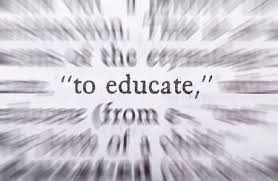Can you achieve the same or better performance results with reduced training volume? More on More with Less.

All coaches have five things in common:
- A love of the sport they coach;
- The passion and drive to be the best they can be;
- An unquenchable thirst for knowledge and learning;
- A desire to see every athlete they coach realise their full potential;
- An unbreakable devotion to their philosophy on training volume.
Why this obsession with volume of training? Why do coaches resist any attempt from sports scientists and others to reduce their training volume? Why do coaches resent any implication that they are training their athletes too hard?
Because, in spite of all the research and all the literature and all the advances in sports science, sports medicine and performance technologies, the only thing that is proven – beyond doubt – to improve performance is consistent hard training.
And because coaches know that hard training works – and all the other stuff is pretty much theory, fad or trend, they are reluctant to change their approach to training and incredibly resistant to any notion of tampering with their training methodologies.
Recovery….
Take for example the world’s obsession with recovery. Do we think things like hydrotherapy, massage and recovery nutrition strategies enhance competition performance? Yes.
Does it make sense that they should enhance competition performance? Yes.
Are they proven to enhance competition performance? No.
You could say the same things about “core stability / Pilate’s”, “vibration machines”, “sports supplements” and “altitude training for sea level performance” – good ideas, great concepts, interesting to talk about but not proven to enhance competition performance.
Hard work. The only way?
The only thing that has been conclusively demonstrated beyond any doubt to enhance competition performance is training.
So logically, any attempt by a researcher or sports science service provider to change the one thing coaches know works is likely to be met with blank looks, cold stares and a loud “no thanks”. Coaches think – “I am responsible for the performance of my athletes. I know that training hard works. So why would I risk my reputation, my job and the success of my athletes on anything that is not proven to work?”. And this has led to 20 years of frustration, fear and fighting between coaches and sports scientists all over the world.
However, it is also clear, that in many sports, coaching beliefs about the volume of training required to become an elite performer are more based on myth, anecdote and legend than they are on logic and practical experience.
Take for example the following training volume “myths and legends” of various sports:
- Distance running – 100 miles a week;
- Swimming – 100 kms a week;
- Diving – 100 dives a session;
- Tennis – 1000 hits a session;
- Cycling – 1000 kms a week;
- Many Olympic sports – 10 sessions a week / or 24 hours a week.
Many of these “volume myths” have grown out of “coaching conference story telling” where successful coaches share the secret to their success which then gets written down and copied by every coach in the room; coaches who mistakenly believe that copying the success secrets of others is the secret to achieving their own.
Over time, these “myths” become “training truths” – e.g. “if your swimmers are not swimming ten sessions a week they will never be successful” and like all myths, these stories get passed down from coach to coach, from generation to generation until they become accepted practice by the entire coaching community of that sport.
Now to More with Less.
Let’s look at the issues.
- There is no one size fits all, magic formula, guaranteed to succeed, every athlete must do, mythical training volume which works for all athletes: Fact: all athletes are unique individuals;
- Kids and parents (and coaches for that matter) have limited time to fit in all the opportunities and options that life offers: Fact: everyone has less time available;
- There is an unprecedented explosion of ideas and information on the Internet that is free for athletes and coaches to access – anytime – anywhere: Fact: everyone knows what you know;
- Our understanding of peak performance in sport has become increasingly sophisticated and we know more than ever about learning, training adaptation, genetic potential, mental abilities, recovery, nutrition and performance technology: Fact: we have the knowledge and information to train, prepare and compete more efficiently;
- The ability and capacity of Generation Y and I athletes to learn has accelerated due to the integrated, collaborative learning environment social media now offers them: Fact: your athletes can and do learn faster than any previous generation.
Now put all these facts together……and what do you come up with?
We need to create an efficient, effective training, learning and development environment which provides the optimal opportunity for individual athletes to train, to learn and to improve at an accelerated rate.
Is this just about cutting back on training volume? Of course not!
I am with the coaches on this: let’s not reduce training volumes unless…..we create an environment at training which consistently embraces accelerated learning.
Just kutting kilometres and minimising miles is not the answer unless………we first ensure that every athlete is totally engaged in every aspect of the program and trains efficiently and effectively every moment they train.
Having training sessions off is not the solution unless…….we know that every athlete trained to the full extent of their ability and potential at every session they attended.
So, more with less is possible but it requires some fundamental changes in your performance environment, beginning and ending with athletes accepting greater responsibility for their own performance and coaches prepared to coach in collaboration with their athletes: a perfect performance partnership.
Times are changing: are you?
Wayne Goldsmith



2 Comments
james marshall · January 21, 2010 at 5:32 am
Hi Wayne,
didn’t think Roy Williams book was called “efficient training” !
http://excelsiorgroup.blogspot.com/2010/01/roy-williams-hard-work-book-review.html
There does seem to be an emphasis on the puritan work ethic amongst Coaches in the US- which may translate to what they want from their athletes.
Wayne Goldsmith · January 21, 2010 at 8:52 am
Thanks James.
It is easy to coach by work ethic – but the question is will the athletes ever realise their full potential through hard work alone?
The work ethic approach assumes that tough training is the answer to everything, e.g. the belief that as the athletes get fitter and stronger (physical), they grow in confidence and self belief (mental). I am all for hard training – there are no short cuts to winning at high performance level – but taking an uncompromising, determined, committed approach to achieving optimal performance does not mean just training until your legs fall off.
I hope coaching has progressed from the simplicity of the work ethic based approach to something a bit broader, smarter and more intelligent. It’s like people still using an abacus to count – sure, it works – but there are many many better ways of doing it.
Thanks again.
WG